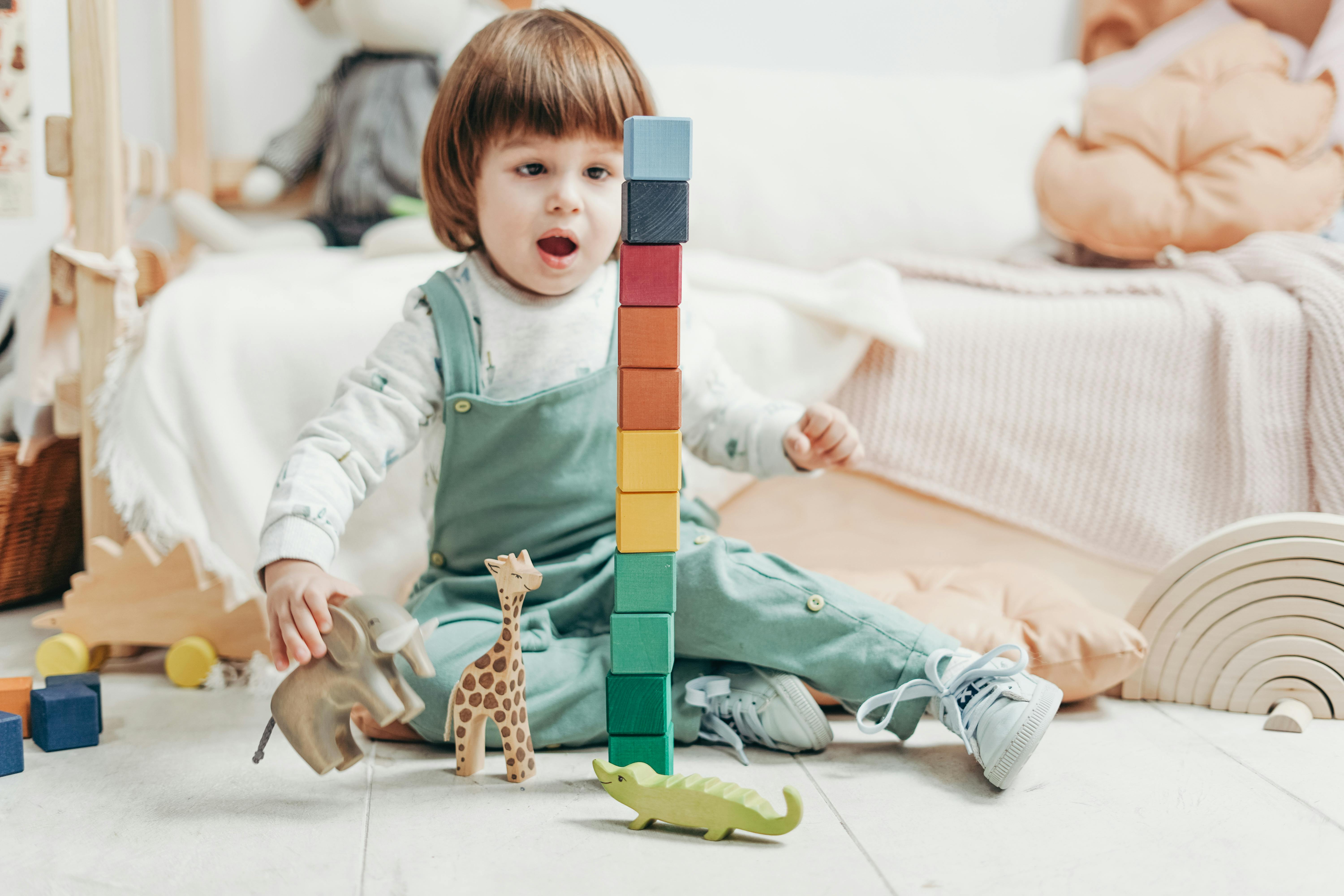In the early years of development, children have the most vivid imaginations with no bounds. Unfortunately, this comes with a dark side that often elevates their fears with perceived exaggerated worries. Anxiety in children is one of the most common mental health issues, affecting approximately 1 in every 8 children. The symptoms often manifest in several forms, including irrelevant fears, phobias, night terrors, sensitivity, nightmares, and, in extreme cases, even selective mutism and social withdrawal.
Although some anxiety is normal in children when introduced to new stressful situations, chronic anxiety can interfere with their everyday activities, relationships, and overall well-being. Hence, finding effective ways to help children manage their anxiety is essential. One proven, child-friendly approach is play therapy anxiety alleviation, which stands out as one of the most effective solutions, providing kids with a safe environment to express themselves. Creative intervention of therapeutic techniques like CBT can significantly help these young souls develop healthier beliefs and worry-free thought patterns.
How Anxiety Manifests in Children?
Anxiety in children presents itself differently than in adults. Unlike adults, children may not have the words or awareness to describe what they are feeling—whether it's their fear or worry. Instead, anxiety in children often manifests in physical, emotional, and behavioral symptoms. It can affect children of all ages, from toddlers to teenagers, and can be triggered by various factors such as family stress, school pressures, bullying, trauma, or changes in their environment. Anxiety can take the shape of the following:
Complaints of stomach aches, headaches, or dizziness. (Physical symptoms)
Avoidance of certain activities or situations, refusal to attend school, or disruptive behaviors. (Behavioral symptoms)
Restlessness, irritability, excessive worry, or frequent crying. (Emotional symptoms)
Dealing with anxiety at such a young age rewires a child’s brain, influencing their growth and development. If left unaddressed, this can affect a child’s academic performance, social relationships, and emotional well-being. Hence, early intervention is necessary, as these seemingly harmful worries can significantly hinder a child’s social development, making them sensitive to emotional cues. The younger the child, the more malleable their brain is, allowing therapeutic interventions to reshape unhealthy thought patterns before they deeply disrupt their growth.
How Does Play Therapy Alleviate Anxiety?
Play therapy is a therapeutic approach that uses play to help children express their emotions, process difficult experiences, and develop healthy coping strategies. Play is the natural language of children, and it allows them to communicate and make sense of their feelings—concerns, fears, and frustrations—in a way that feels comfortable and safe.
Many sensory activities use exposure therapy to introduce the kids to their phobias and worries, reframe their brains, and give foundation to healthier beliefs. Techniques like sand tray therapy, stick & stones strategy, and art therapy can significantly help children while they are having fun.
Over time, play therapy builds resilience, improves emotional control, and encourages positive beliefs in children, giving them the necessary tools to face their fears. Here’s how it works:
1. Safe Expression of Emotions
Children often struggle to verbalize their feelings, especially when they’re anxious or afraid. Through play, children can externalize their fears, worries, and frustrations in a nonverbal way. For example, a child may use puppets to act out a situation where they feel overwhelmed or helpless, allowing them to release pent-up emotions and gain a sense of control over them without feeling judged or misunderstood.
2. Building Emotional Awareness
Many children with anxiety lack the ability to identify or label their emotions, which can make it harder for them to cope with what they’re feeling, such as a racing heart or tight chest. Play therapy helps children build emotional awareness by using activities that encourage them to name and express their feelings.
3. Teaching Coping Skills
Anxiety can leave children feeling overwhelmed and helpless, but play therapy offers them practical tools to cope with their fears. Many play therapy techniques incorporate cognitive-behavioral therapy (CBT) principles, such as teaching children how to challenge negative thoughts and replace them with healthier, more balanced perspectives.
4. Empowerment and Control
Play therapy gives children the chance to experience control over their anxiety. Children are exposed to challenging situations during play. Successfully completing these challenges gives children a sense of accomplishment and control over the situation, reinforcing the idea that they can handle difficult feelings and situations.
5. Strengthening the Therapeutic Relationship
The trusting, supportive connection that develops during sessions makes it easier for children to open up about their fears and anxieties. Play therapists also act as a guide and model, demonstrating ways to regulate emotions and teach them how to use coping strategies. This positive role modeling can help children internalize healthy coping mechanisms that they can use in their daily lives.

Key Play Therapy Strategies That Work to Alleviate Anxiety in Children
The main goal of play therapy is to provide a safe and secure environment where children can express themselves and learn healthy coping mechanisms to deal with their emotions. There are several techniques that therapists use in play therapy to target and alleviate anxiety in children specifically:
Cognitive-Behavioral Play Therapy (CBPT)
This approach combines the principles of CBT with play. It helps children identify distorted or irrational thoughts that contribute to their anxiety and challenges them to replace them with more realistic, empowering thoughts.
Worry Dolls or Worry Boxes
Children are encouraged to write down their fears or worries and place them in a special box or hand them to a worry doll. This externalizes their anxiety and makes it feel more manageable.
Relaxation Games
Playful games, such as pretending to blow up a balloon or puffing out “magic” breath, teach children how to self-soothe and calm their bodies when anxiety arises. Such techniques make it easier for parents, teachers, and caregivers to provide play therapy at home and in schools to maintain the beneficial influence of therapy.
Role-Play & Puppets
Children often use puppets or dolls to act out scenarios that cause them anxiety. This technique allows them to process feelings in a less direct way while also teaching coping strategies through imaginative play.
Virtual Therapy
Our newer generation relies heavily on electrical devices, and where traditional methods fail, teletherapy or online therapy programs work wonders. Play therapists are now equipped with tools and interactive apps designed to provide play therapy to our tech-savvy kids. We have virtual playrooms with games that help kids express themselves in their language.
Play therapy is a diverse technique that continuously evolves with social and technical advancements. If you want to stay up-to-date with these updates, continuing education is essential. Core Wellness Courses offer therapists the opportunity to learn and develop new techniques for play therapy. There are several amazing therapists like Beth who offer both live and on-demand courses that provide key practical strategies for getting better therapeutic outcomes while addressing anxiety in children.

Final Thoughts
Play therapy is a powerful tool for alleviating anxiety in children. By providing a safe space for expression, building emotional awareness, teaching coping skills, and fostering a sense of empowerment, play therapy helps children not only manage their anxiety but also thrive in the face of life’s challenges.
If you’re a professional looking to make a real difference in the lives of anxious children, Core Wellness offers live and on-demand courses that are packed with insightful knowledge and techniques you need to get started. Enroll today and help children with better and more efficient play therapy techniques!






